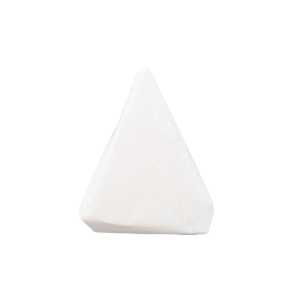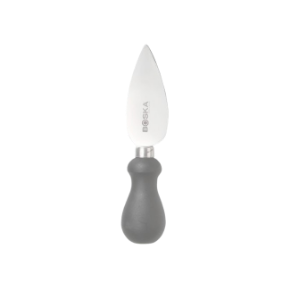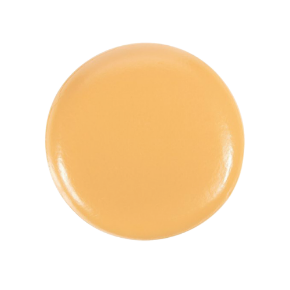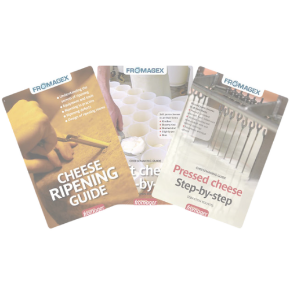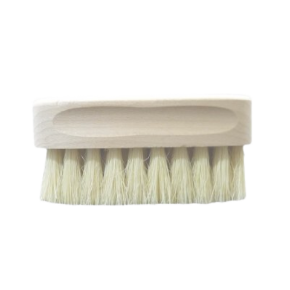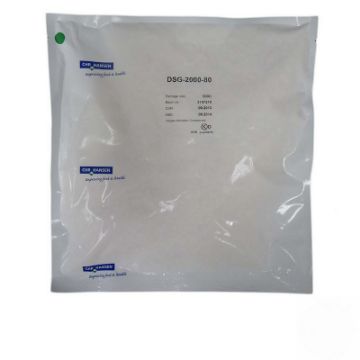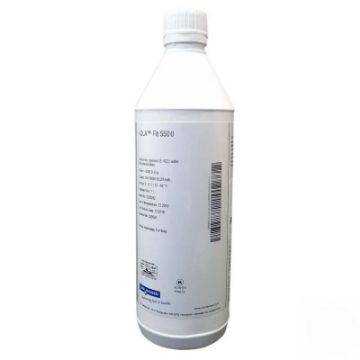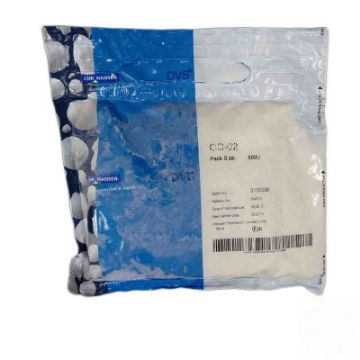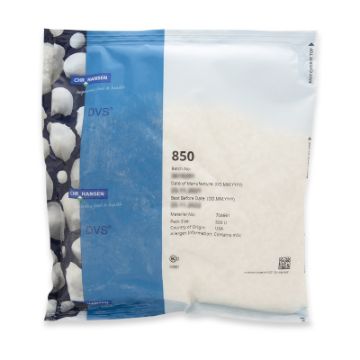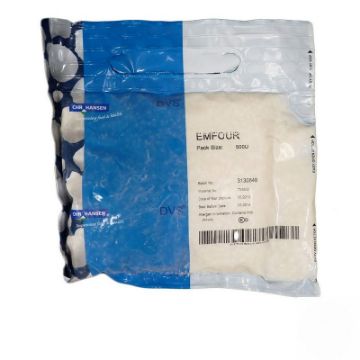Products tagged with ''
DSG-2000-80 Frozen 500 u
Mesophilic eXact® culture, type L.
The culture produces diacetyl flavor and a medium level of CO2.
DSG 2000 cultures can be used in any cultured dairy product where a balanced acid and diacetyl flavor is desired.
These cultures are formulated to produce a shorter make time without compromising flavor.
DSG 2000 cultures are ideal for manufacturing the following products:
- Buttermilk
- Sour cream
NOLA™ Fit 5500 Lactase, 1 L
NOLA™ Fit 5500 is a novel highly-purified and standardized liquid wide spectrum Bifidobacterium bifidum ß-galactosidase (lactase).
It is produced by submerged fermentation on a vegetable substrate using a selected strain of Bacillus licheniformis kept under contained conditions and not present in the final product.
The product hydrolyses lactose to a mixture of glucose and galactose.
The product is a premium lactase particularly suitable for fermented milks and cheese manufacture and to avoid off-flavor typically associated with lactose free UHT/ESL milk products.
CC-02 Frozen 500 u
Mesophilic homofermentative culture, type O.
This culture contains specially selected strains chosen for their phage resistance and ability to produce lactic acid quickly.
This culture does not produce CO2.
LH-17 Frozen 500 u KFP (Box of 10 pouches)
Defined thermophilic lactic acid culture.
The culture enhances the overall flavor intensity of the cheese by accentuating important flavor notes, and especially nutty flavor.
This Chr.Hansen culture range provides a complete line of Kosher for Passover blends.
The culture is primary applied in the production of Italian and Swiss cheese varieties.
The culture can be applied alone or in combination with other lactic cultures, e.g. Streptococcus thermophilus and Lactobacillus delbrueckii subsp.bulgaricus and LD culture.
EMFOUR Frozen 500 u
Thermophilic homofermentative culture blend.
In 1984 it was selected by Dutch cheesemakers as the most effective thermophilic culture for accelerating ripening in Dutch cheeses.
The culture significantly enhances mature and nutty flavor notes, and there is a tendency towards sweet, sour and salt tastes, too.
The body of the cheese is also enhanced by the use of EMFOUR.
The culture can reduce the ripening time by several weeks depending on the type of cheese, storage temperature and desired flavor.

